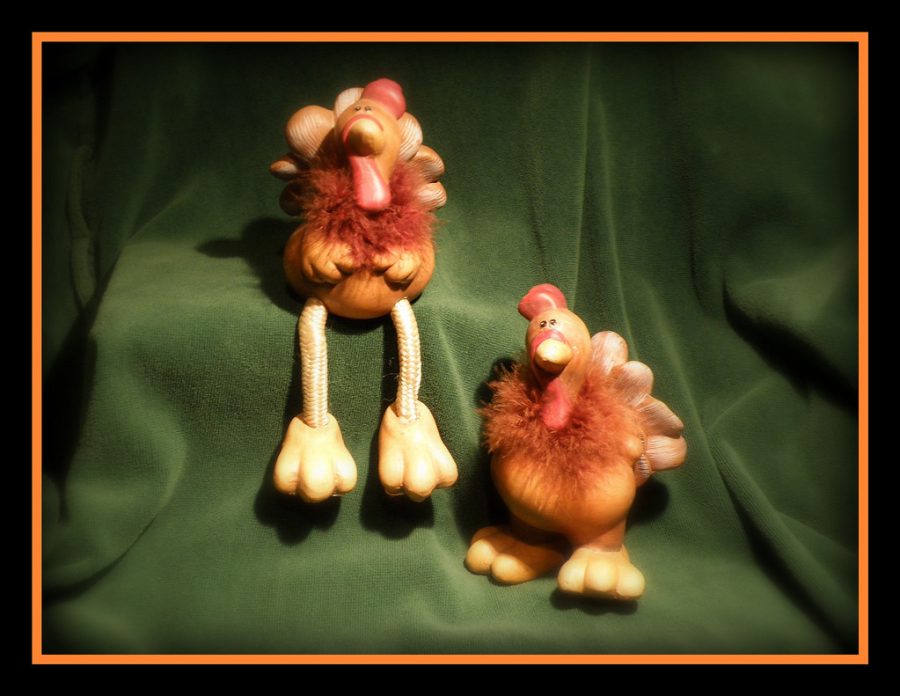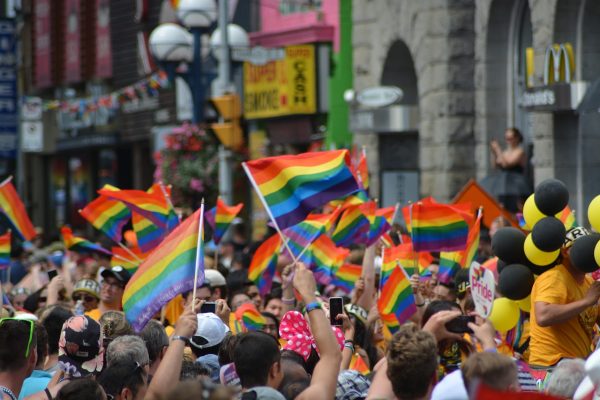Romanticization of Thanksgiving
“Happy Thanksgiving” by Hammer51012 is licensed under CC BY-SA 2.0.
Thanksgiving is in less than a week, and families and friends in America are preparing for a big feast. Although the holiday is perceived as a day of gratitude, there is a brutal background beyond the surface.
Thanksgiving is also known as the Harvest Festival, indicating the first successful harvest feast between English colonists and the Wampanoag native tribe. It is unknown to most that the autumn feast was more of a diplomatic decision to solidify a political alliance between the two groups
“Honestly now that I think about it, I’ve never really learned about the true story behind Thanksgiving in school,” junior Nolan Tiech stated.
While Thanksgiving sheds light on an example of peace between colonists and Native Americans, many believe that the holiday covers up the gruesome history of native persecution by the English. The English colonists and Wampanoag tribe were allies for about 50 years, until the colonists eventually attacked the tribe. The Harvest Festival is one of the only instances of harmony between Native Americans and English-Americans.
Those who are familiar with the backstory of Thanksgiving are reminded each November of the horrible oppression of Native Americans. Should the holiday be a cheerful day?
“Thanksgiving should not be a joyous occasion because even though it’s celebrated as a day of thanks, the pilgrims took land from the native people and deceived them,” senior Carter Riedel said. “Even now, people refer to Native Americans as Indians because of this holiday, which is incorrect and disrespectful.”
The autumnal holiday has a complex past, and multiple presidents tried to remove it as a federal holiday. Other political figures over the years suggested that it should be renamed to shed light on indigenous culture.
Although it has a dark past, some Americans are able to look past it and be grateful for their own lives.
“Thanksgiving is a great time to have family and friends get together and eat,” Tiech said. “My family doesn’t really focus on the past of the holiday, we use the day to spend time with each other.”
Families have their own traditions each November, but the involvement of Thanksgiving in schools is its own issue.
Even within the last decade, young students hold celebrations in school that include damaging stereotypes and misrepresentations of Native American culture. Kids in grade school rarely learn about the true history of Thanksgiving.
“The only time I learned anything about Thanksgiving was in elementary when we had to make crafts to resemble stereotypical Native American headwear,” Tiech added. “Looking back, that was really problematic.”
It is easy to mindlessly take part in Thanksgiving celebrations during such a joyful time of year, but it’s important to understand the Native American oppression that took place within this country. Show gratitude toward indigenous people and try to eliminate harmful stereotypes still in society and the media.
“You can still celebrate the holiday, as long as you can be respectful of the past,” Riedel concluded. “It’s a good way for people to get together and be thankful.”
Your donation will support the student journalists of Findlay High School. Your contribution will allow us to purchase equipment and cover our annual website hosting costs.


